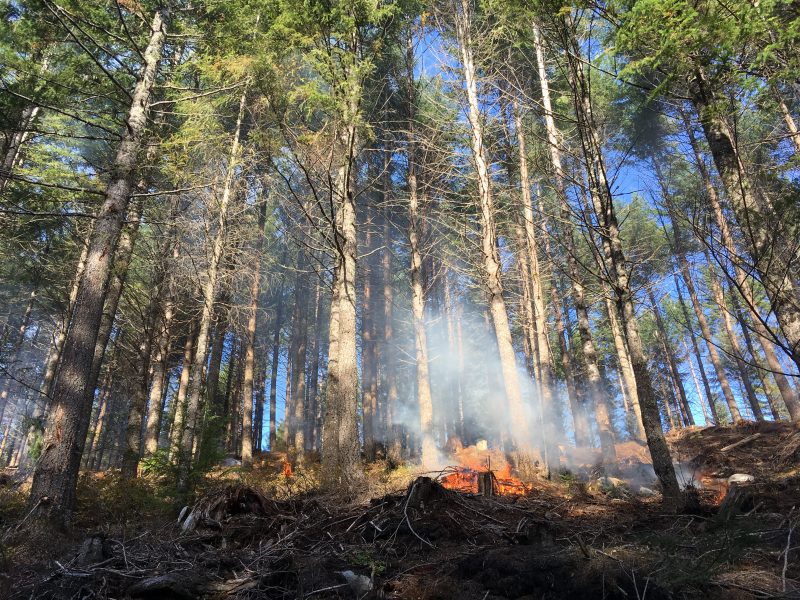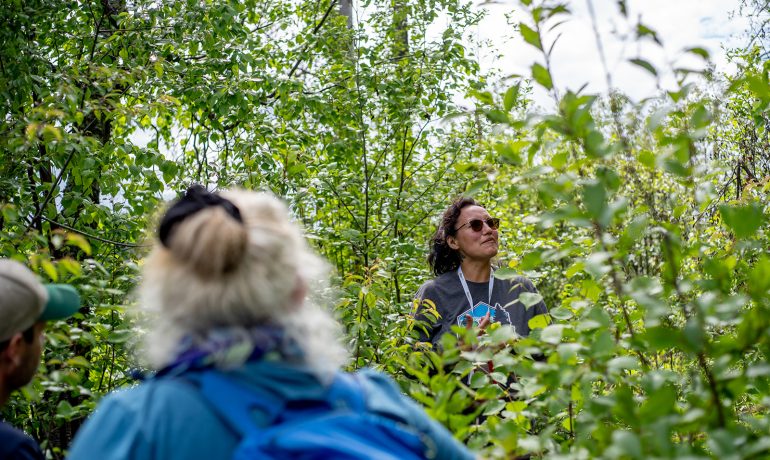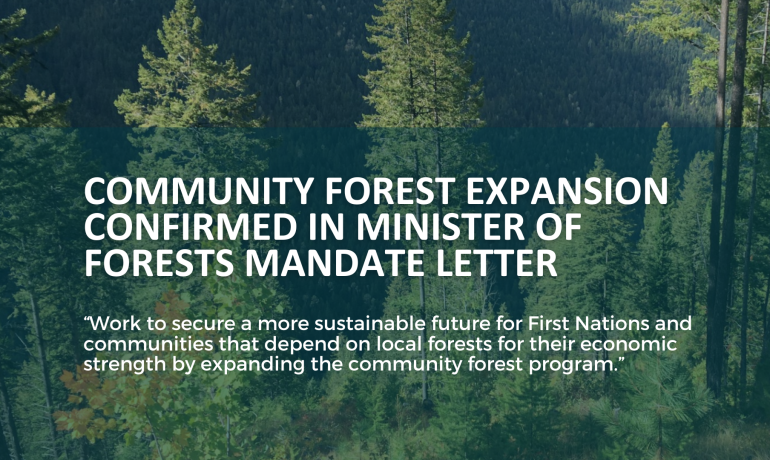Forest Enhancement Society of BC
Press Release: June 7, 2019
Kamloops, B.C.: Ahead of the BC Community Forest Association’s (BCCFA) Conference and AGM in Mission, B.C. June 12 to 14, the team at the Forest Enhancement Society of B.C. (FESBC) is reflecting on the important work community forests throughout the province are undertaking to mitigate wildlife risk and at the same time enhance wildlife habitat, forest recreation, increase the utilization of fibre, and reduce greenhouse gas emissions through various treatments. These projects provide a triple win for British Columbians: increased social, economic and environmental benefits.
“Wildfire risk reduction to protect people, homes, businesses, communications, water, power, and emergency escape routes is a priority for FESBC and community forests. We’ve been able to collaborate with many community forests throughout the province and have worked in unison with the BCCFA,” said FESBC Executive Director Steve Kozuki. “The BCCFA is a network of community-based organizations in B.C. that are either currently managing or striving to establish community forests. Their leadership to ensure the viability of community forest initiatives, to provide education on community forestry issues, and to promote community forest management as a strategy for rural economic development is outstanding. Many of their members have received FESBC funding to do critical work to enhance and protect their community forests, and a great number of these projects are now reaching important project milestones.”
Echoing Kozuki’s comments is BCCFA Executive Director Jennifer Gunter. “British Columbians are passionate about community forests because they involve the three pillars of sustainable development: social, ecological, and economic stability. At its core, community forestry is about local control over, and the enjoyment of, the monetary and non-monetary benefits offered by local forest resources. We are so pleased to have FESBC fund many community forest projects and already see the great outcomes these projects are providing local communities across the province.”
A few recent highlights from community forests throughout the province include:
Cheakamus Community Forest (CCF)
The CCF is completing a fuel-thinning wildfire risk mitigation project as part of a landscape level fuel break on the southern slopes of Whistler Mountain. The project, along both sides of the Cheakamus Lake Forest Service Road, serves as the main access point into Cheakamus Lake and Garibaldi Provincial Park. The purpose is to alter wildfire behavior by modifying forest densities and structure in this high priority, heavily used portion of the community forest to protect the south facing slopes of Whistler Mountain, the community of Whistler, and the western edge of Garibaldi Provincial Park.
West Boundary Community Forest
A project in the May Creek area has been successful in reducing excessive fuel loads to mitigate catastrophic wildfire risks and is helping to mitigate mid-term timber supply shortfalls by utilizing economically marginal stands. Dead and dry pine has been converted into bio-energy, wildlife habitat is being improved, and air quality improvements in the future will be realized by managing emissions through prescribed fire and/or other treatments now, as opposed to emissions resulting from a wildfire potentially occurring during less favorable atmospheric conditions.
Logan Lake Community Forest (LLCF)
A planning project brought together First Nations, registered professional foresters, and other key stakeholders from the Logan Lake area to develop an implementation plan focusing on areas of highest risk to ensure future work is strategic and priority based. The plan involved many steps including a risk assessment to develop management strategies in response to risks identified. The final report highlighted the areas of most significant risk to wildfire, and work has begun on the ground to mitigate the risk to the community forest.
“Community forest projects are guided by local people making local decisions in their local forests. This principle is a hallmark of community forests in our province,” said Gunter. “We are delighted to see many partners come together to produce these excellent results for our forests and communities and are again so pleased to see the good work made possible by the funding provided through FESBC.”
For More Information on the BCCFA’s Annual Conference: https://bccfa.ca/2019-conference-and-agm-june-12-14/
For More Information on the Forest Enhancement Society of B.C.:
Aleece Laird, Communication Liaison FESBC
250.574.0221 | communications@fesbc.ca
-30 –
Related Post
As Published in Canadian Forest Industries Magazine, Pulp & Paper Magazine and Canadian Biomass Magazine
Jennifer Gunter’s Op Ed, “Community Forests: Rooted in Community,
Minister of Forests Mandated to Expand BC’s Community Forest Program
In the recently released mandate letter to the Minister



